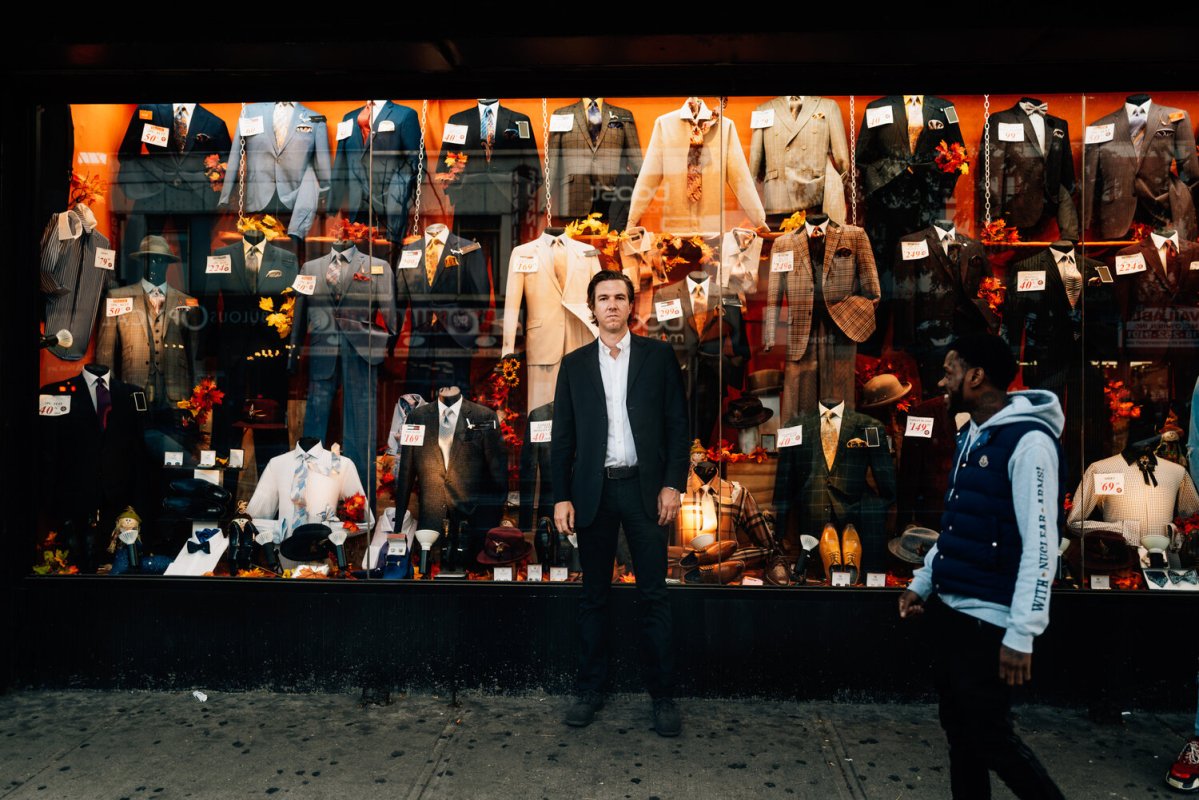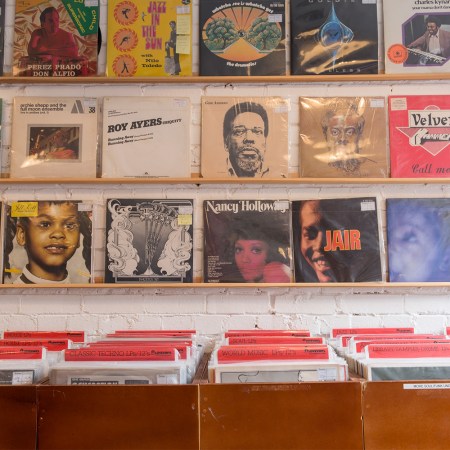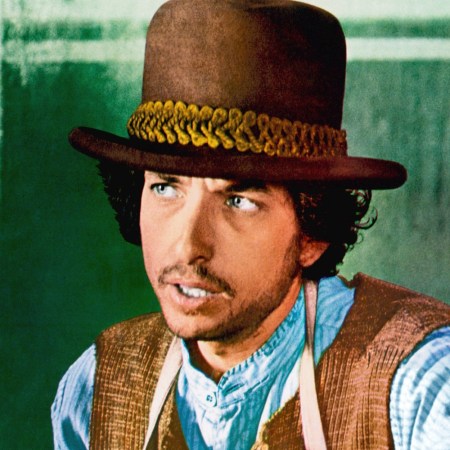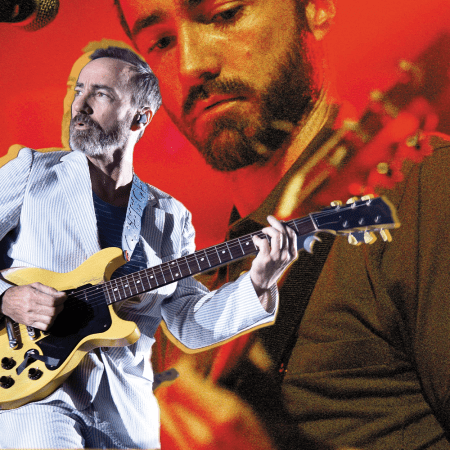I’m unsure what habits I’ve gained throughout the coronavirus lockdown that I’ll take with me whenever this is all said and done. There’s a part of me that says I should abandon anything gained, any of the little things I pick up should just be a part of my history, not to be carried on once this current tragedy is behind us. But then I think of something Wendell Berry wrote, about how “to lose the scar of knowledge is to renew the wound,” and I start to think that maybe a few things can survive in the hopefully brighter future I’ve been thinking a lot about.
One such thing is my new Monday ritual of listening to Leonard Bernstein and the Columbia Symphony’s 1959 take on George Gershwin’s “Rhapsody in Blue” first thing in the morning while New York is frighteningly quiet outside my window. This iconic piece of music, a song we’ve all heard a thousand times before, gives me a little strength to start off the week that feels like it never really ended. This song that has been the soundtrack to countless United flights and the song that comes booming in as Isaac Davis tries to put into words his love for New York City in Manhattan; it’s one of the greatest songs in the Great American Songbook to the point that I’d almost consider it liturgy in the tale of our country’s story.
This important work of art has become attached to the current time for me. It’s part of the soundtrack for these awful times, and I couldn’t be more thankful for it. That song and the others that are carrying me through this will become like war buddies to me.
Given the circumstances, I haven’t been keeping abreast of much new music over the last month. I couldn’t miss the news that Bob Dylan had released an epic about the JFK assassination, and I waited along with everybody else I know for Fiona Apple to give us Fetch the Bolt Cutters. Thanks to the draw of the algorithm, I knew the band Iceage release a song called “Lockdown Blues.” But that’s about it, and those felt more like surprises. Dylan’s song certainly was, and Apple’s album had an air of “This could come out tomorrow or it might never come out.”
All of this music will carry with it the reminder of these times for me, but there is one new album, a record that I’d had in my date book long before we were greeting each other from six feet apart with face masks on, that will remind me of the happier moments of this epidemic — yes, happy, because I’ve loved listening to it so much. That album is The Loves of Your Life by Hamilton Leithauser.
Associating an album with a pandemic might sound like a damning review, but really it’s the opposite: the songs that get us through the day are cathartic, therapeutic, an escape from it all. Along with “Rhapsody in Blue,” high points of my week include a neighbor’s nightly 7 P.M. blasting of Frank Sinatra’s “New York, New York” to remind us where we are while we cheer for people driving ambulances and collecting bags of garbage, and my ritual of listening to Sam Cooke’s “Another Saturday Night” as I walk my dog while the sun goes down over the city. It’s upbeat reminder that it’s supposed to be the most exciting night of the week, but, like you, I ain’t got nobody that I can grab a drink with, or a bar to drink those drinks at. The Loves of Your Life now belongs on that list as well.
It took me a little time to get deep into Leithauser’s catalogue. I regrettably had a lapse in listening to his band, The Walkmen, after I’d grown sick of reading the hype on one new New York band after another, and ignored them for over a decade despite admitting to liking a few of their songs. A few years ago, I stopped in at a Greenpoint bar I used to frequent with friends when “The Rat,” off the band’s second album, came on. “When I used to go out, I would know everyone that I saw. Now I go out alone if I go out at all.”
That lyric rang out crystal clear to me not only in that moment, but as a treatise on the entire feeling of growing up and getting older. I wondered if I’d missed out on something big. So I went home and listened to as much of Leithauser’s work as I could, from his pre-Walkmen band, The Recoys, all the way to his solo stuff. I don’t really get obsessed with contemporary musicians to the point where I feel I need to play catchup, especially not the ones associated with New York City in the aughts.
But Leithauser offered up something a little different. His songs never felt formulaic. Obsessively crafted without losing anything, literary without being precious, he offered a bridge between the old and the new, from flashes of Tin Pan Alley to garage rock to U2, all filtered through a post-indie sensibility that could work live to a crowded arena or a small downtown club. Pitchfork trends be damned, you can draw a pretty direct line from his early work to The Love of Your Life, but this outing feels extra special to me. After one spin, I realized this is music that I like. After a few more times, I realized it’s the world I want back. It’s one filled with people, all their flaws on display. Little short stories about specific people from his past, with that little piano twinkle in the back flickering like the sun shining just enough light on their faces. When Leithauser sings about how “the stars of tomorrow are brighter every night” over a hazy doo-wop backing, he isn’t singing about the current times, but it resonates with me now, it gives me a little hope. The stars will come out tomorrow and they’ll be brighter. We’ll get a little closer to getting to where we want to be again.
I personally don’t think I’ll find a new album that will please me more in 2020, and that’s not due to the influence of the current circumstances. But I’d be lying if I said the timing doesn’t hurt, either. In fact, I’d wager that when The Love of Your Life was released will only help to elevate it to the top Albums of My Life list so early in the year. I’ve been listening to it all the way through at least once a day; it’s a comfort like baking bread or watching films about glamorous people stuck in a mansion, possibly trying to figure out who committed a crime (from The Weekend Murders to Clue and Gosford Park).
Most importantly, it’s a hopeful album, one that reminds me of the people I miss, nights out and mornings grabbing coffee, just sitting and talking with somebody, not giving a thought to things we might regret. It reminds me just how much we should cherish moments with people, because we don’t know what will happen to those relationships, or how much we’ll miss them when they’re no longer around.
This article was featured in the InsideHook newsletter. Sign up now.













![[L-R] Bill Berry, Michael Stipe, Mike Mills and Peter Buck of R.E.M. at the Aragon Ballroom in Chicago, Illinois on July 7, 1984.](https://www.insidehook.com/wp-content/uploads/2024/12/rem-book-interview.jpg?resize=750%2C750)




